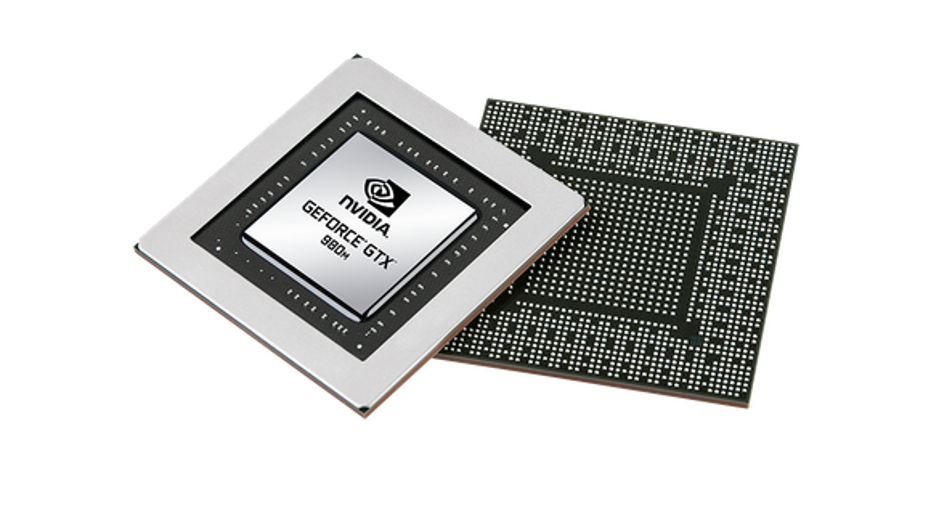NVIDIA Corporation Likely to Launch Mobile Pascal Soon

NVIDIA's current generation mobile flagship -- the GTX 980M. Image source: NVIDIA.
VideoCardz.com, a website dedicated to graphics cards, spotted something interesting from ASUSTek, a well-known maker of gaming laptops: a "teaser" for an upcoming mobile graphics processor. ASUSTek claims that this mobile graphics processor offers more performance than NVIDIA's previous desktop flagship graphics card, the Titan X in the popular 3DMark 11 performance test.
The website speculates that this is likely to be NVIDIA's upcoming GeForce GTX 1080M mobile-focused graphics processor based on the company's Pascal architecture. This speculation makes a lot of sense and, frankly, I wouldn't be surprised to see systems based on the 1080M be formally announced by ASUSTek, as well as other gaming notebook makers, at the Computex trade show in less than two weeks.
Why didn't NVIDIA already announce this part?It is extremely likely that the GTX 1080M (or whatever it's ultimately called) is already good to go. After all, assuming that NVIDIA follows the same playbook that it did with its prior-generation GPU architecture, it is probably based on the exact same silicon that powers the recently announced GTX 1080 and GTX 1070 desktop graphics cards.
I suspect the main reason that NVIDIA kept quiet about mobile-based parts is due simply to the fact that its system partners, as well as the customers of those system partners (retail/online retail shops), need to clear out existing system inventories before the new stuff comes.
Pascal for notebooks should be a nice boostWhen NVIDIA launched its prior-generation Maxwell architecture for notebooks, the company was quite proud of the fact that its mobile-oriented Maxwell parts could deliver about 80% of the performance of its desktop-oriented counterparts.
I suspect that Pascal, which is significantly more power efficient than Maxwell, should be able to maintain or even further narrow the gap seen between mobile Maxwell and desktop Maxwell parts. This should make Pascal-powered gaming laptops even more viable alternatives to gaming desktops than Maxwell-powered gaming laptops.
What does this mean for NVIDIA and others?NVIDIA has the majority of the gaming notebook market to itself already, so releasing new, Pascal-based products for gaming notebooks isn't going to do much to help it to gain share. However, the kinds of people who buy gaming computers (both notebooks and desktops) are generally those types of people who appreciate, and are willing to pay for, performance.
What Pascal-based notebook gaming chips could do is potentially catalyze upgrades among gaming notebook buyers during the second half of the year. In this case, NVIDIA would clearly see a benefit, as would the manufacturers of gaming notebooks (the likes of ASUSTek, MSI, and so on).
If such an upgrade cycle happens, then NVIDIA isn't the only company that would stand to benefit. Processor giant Intel , which has frequently cited gaming as a key growth area within its client computing group, should benefit from a gaming notebook upgrade cycle.
That being said, Intel is broadly exposed to the PC market, so while a strong gaming notebook ramp would help (chips that Intel sells into such systems are quite high value), the impact won't be as dramatic for it as it could be for NVIDIA.
The article NVIDIA Corporation Likely to Launch Mobile Pascal Soon originally appeared on Fool.com.
Ashraf Eassa owns shares of Intel. The Motley Fool owns shares of and recommends NVIDIA. The Motley Fool recommends Intel. Try any of our Foolish newsletter services free for 30 days. We Fools may not all hold the same opinions, but we all believe that considering a diverse range of insights makes us better investors. The Motley Fool has a disclosure policy.
Copyright 1995 - 2016 The Motley Fool, LLC. All rights reserved. The Motley Fool has a disclosure policy.



















